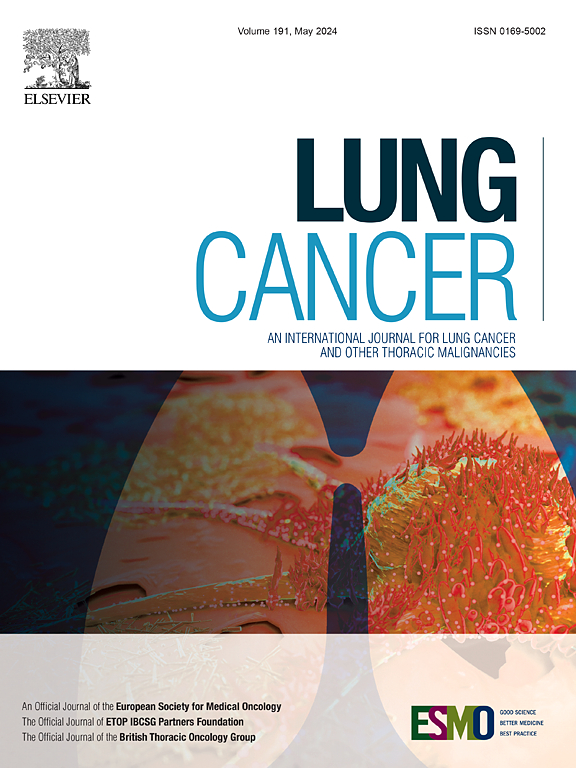一起管理lorlatinib: alk阳性NSCLC患者和医学专家对患者的概述和实用指南
IF 4.4
2区 医学
Q1 ONCOLOGY
引用次数: 0
摘要
Lorlatinib是一种口服治疗晚期alk阳性非小细胞肺癌(NSCLC)患者的药物。其疗效在CROWN临床研究中得到证实,该研究5年的随访数据显示,晚期alk阳性NSCLC患者的长期疾病控制有效。虽然氯拉替尼有明显的副作用,但其副作用通常是可控的。成功地管理副作用是保持患者生活质量和促进治疗依从性的关键,这两者都是最大化氯拉替尼长期效益的关键。CROWN研究表明,lorlatinib相关的副作用可以通过剂量调整来控制,例如降低日剂量,而不会牺牲治疗效果。本指南由晚期alk阳性NSCLC患者和具有lorlatinib治疗经验的医疗保健专业人员共同开发,旨在帮助患者了解治疗的预期效果以及如何在他们的护理中发挥知情、积极的作用。本文章由计算机程序翻译,如有差异,请以英文原文为准。
Managing lorlatinib together: An overview and practical guide for patients by ALK-positive NSCLC patients and medical experts
Lorlatinib is an oral treatment for patients with advanced ALK-positive non-small cell lung cancer (NSCLC). Its efficacy was demonstrated in the CROWN clinical study, in which data from 5 years of follow-up demonstrated effective long-term disease control in patients with advanced ALK-positive NSCLC. While lorlatinib has a distinct side effect profile, its side effects are generally manageable. Managing side effects successfully is critical to preserving patient quality of life and promoting adherence to treatment—both of which are key to maximizing the long-term benefits of lorlatinib. The CROWN study showed that lorlatinib-associated side effects can be managed with dose adjustments, such as lowering the daily dose, without sacrificing treatment effectiveness. This guide, developed collaboratively by patients living with advanced ALK-positive NSCLC and healthcare professionals experienced with managing lorlatinib treatment, aims to help patients understand what to expect from treatment and how to take an informed, active role in their care.
求助全文
通过发布文献求助,成功后即可免费获取论文全文。
去求助
来源期刊

Lung Cancer
医学-呼吸系统
CiteScore
9.40
自引率
3.80%
发文量
407
审稿时长
25 days
期刊介绍:
Lung Cancer is an international publication covering the clinical, translational and basic science of malignancies of the lung and chest region.Original research articles, early reports, review articles, editorials and correspondence covering the prevention, epidemiology and etiology, basic biology, pathology, clinical assessment, surgery, chemotherapy, radiotherapy, combined treatment modalities, other treatment modalities and outcomes of lung cancer are welcome.
 求助内容:
求助内容: 应助结果提醒方式:
应助结果提醒方式:


